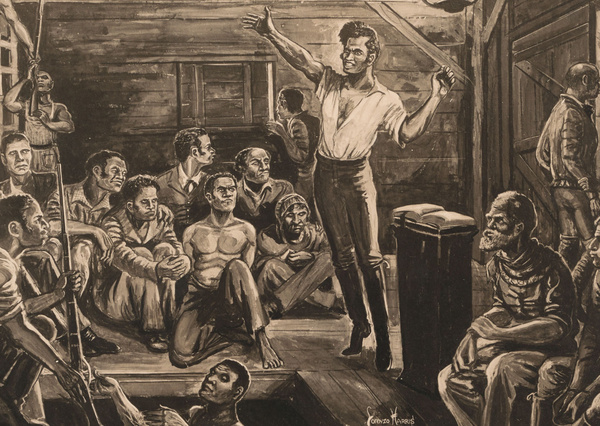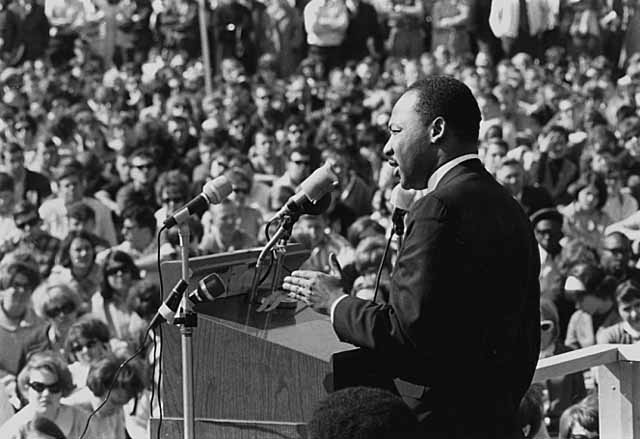Commands and reform
Religious or spiritual voices can offer instructions to the hearer, leading to social or religious change as the hearer acts on the instructions and establishes new teachings, movements or practices.
Like voice-hearers who seek the support of mental health services, many people who see their voices as spiritually significant experience voices that issue commands. Acting on these commands can often lead to experiences of personal change, and, in some cases, significant social or political reform.
Nat Turner
The 19th-century American slave, Nat Turner, heard a voice say, ‘Seek ye the kingdom of Heaven and all things shall be added unto you.’ Following a vision of ‘white spirits and black spirits engaged in battle’, the voice told him that he was ‘called to see…and must surely
In the aftermath of this rebellion, legal questions were asked about the education of slaves as well as the legality of slavery itself. Although the immediate consequences of Turner’s actions led to decreased protections for slaves and heightened tensions across the southeastern United States, his rebellion is now considered one of the most significant events preceding the American Civil War and a harbinger of reforms to come.

Nat Turner Urging the Slaves to Rebellion. Image credit: Lorenzo Harris.
Did you know?
When tempted to give up the fight for racial equality in the United States, Martin Luther King Jnr felt a presence and heard an inner voice say ‘Martin Luther, stand up for righteousness. Stand up for justice. Stand up for truth. And lo, I will be with you, even unto the end of the world.

Martin Luther King, Jr., speaking against the Vietnam War, St. Paul Campus, University of Minnesota. Image credit: Minnesota Historical Society.
Find out more
Read
Adam Powell (2017). The Place of Identity Dissonance and Emotional Motivations in Bio-Cultural Models of Religious Experience: A Report from the 19th Century. Journal for the Study of Religious Experience.
